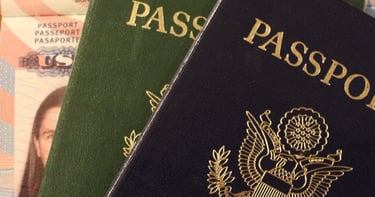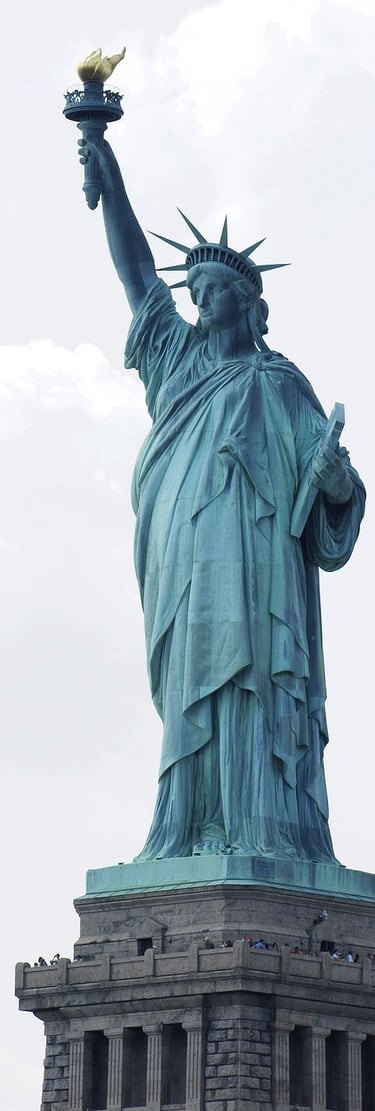PACIFICA LEGAL SERVICES
Your Pathway to Legal Status
We are here to help you navigate the complex immigration process and fight for your legal status in the United States.
Attorney Floyd Fernandez is the esteemed founder and managing attorney of Pacifica Legal, headquartered in Redding, California, with an additional branch office in Palmdale, California. With an impressive 36-year tenure as a licensed attorney by the Supreme Court of Texas, he boasts 25 years of specialization in immigration practice.
Floyd Fernandez obtained his law degree in 1986 from Regent University, Virginia Beach, Virginia, formerly known as O.W. Coburn School of Law. His extensive legal expertise is recognized by his admission to practice before several prominent courts, including the following:
U.S. District Court for the Southern District of Texas,
U.S. Immigration Courts nationwide,
U.S. 9th, 7th, & 5th Circuit Courts of Appeal,
The United States Supreme Court.
Beyond his legal accomplishments, Attorney Fernandez brings a unique blend of skills to his practice. His strong background in research and writing, gained through appellate case work, complements his rich experience in international cross-cultural relationships. This valuable perspective has been honed through collaboration with a California-based nonprofit student service campus organization. As a result, Attorney Fernandez excels in building rapport with clients from diverse backgrounds in his immigration practice.

Immediate Relative Visas * Family Preference Immigrant Visas


Family-Based Visas


Employment-Based Visas
Our experienced attorney will assist and guide employers and individuals in their need for employment-based visas.
There are too many categories divided into different priorities based on employment preferences and qualifications to mention here.




Education: DACA,
F-1, M-1, J-1


Asylums, Detentions, Deportations




Travel, Parole, TPS, Citizenship
Legal Services


SATISFIED CLIENTS
Highly Highly Recommended
5.0 stars
Posted by Saul
Perseverance Patience and Confidence are just several words that come to mind when describing Floyd and his team of highly qualified assistant.
Floyd helped my family with our immigration to the USA. He walked us through the process and essentially took control of the issues that came about with the immigration process.
When the adjudicator demanded more documents and said there would be a delay Floyd calmed us down and navigated us through the steps to get us to the end goal of becoming American Citizens.
Exceptional Service and Expertise
4.0 stars
Posted by Anonymous
Mr. Fernandez
Pacifica Legal provided exceptional service and expertise in helping my company secure work visas for our international employees. I highly recommend their immigration services.


Great Attorney Very
Knowledgable and Kind.
5.0 stars
Posted by Sandra
Great attorney very knowledgable and affordable.
After contacting Mr. Floyd Fernandez 3 years ago for a consultation on how to get my residecy Mr. Floyd got right back to me, I was pleasantly surprise he reach out personally to set up a meetting. He walked me through the process from start to finish.
He was very kind, thorough and understanding of the cituation. He understands that we all want to see results fast, and in my experience with him I had a fast process. He was very patient. If you are looking for someone who is looking for your best interest and willing to actually listen to your needs and worries during a difficult cituation this is the right attorney for you. He also provides you his contact information where he can be reached at all times unlike some attorneys who you’ll leave a voicemail for and never get a return phone call for like sometimes one or two days which can be very frustrating. I recently call him for another case I have and he is still a very awesome person really kind and willing to help.
I would highly recommend Attorney Floyd J. Fernandez, JD
Only Attorney That Said "YES"!
5.0 Stars
Posted by Shaun & Martha
Floyd was the only attorney that said YES i can help your wife get legal status . And he did !! :) After calling and meeting with many attorneys and being told we are sorry but we can not help your wife with legal status, your wife will have to return to Mexico and start the process there in Ciudad Juarez. For us, this was not an option. We had 2 young girls and did not know if she would ever make it back! We also spent many hours on the phone with immigration services and they would just say the same thing, "she will have to leave the country and start process back in Mexico and that there may be a 10 year hold on her when she returns and will not be able to apply until that time has passed."
After 5 years of trying to get answers and help we were at a point where we had no hope of fixing her illegal status. As we were just about to give up all hope, I decided to research and reach out to one more attorney for one last try before we were to give up and live a life in the shadows. I searched for immigration attorneys in Ventura County and came across Floyds name and gave him a call and told him about our situation...He said well lets meet and talk about all the details in person. So we set up a date to get together and after about 15 minutes of looking over all of our files and paper work. He found a returned post card from I.N.S. that dated back to 1990s and he pick it up and looked at it and said this is your Golden
Ticket !
A returned post card from I.N.S that said that they had received her letter but it was denied upon review. We had shown this to other attorneys and talked to USCIS about this over the phone but always got the same answer sorry we cannot help you she needs to return to Mexico. But Floyd saw the law that stood behind that simple little post card that they sent back to her in the 90s and told us that "YES i can help you get Legal status!"
After a few months of his working with us and USCIS, he worked his magic and pulled the rabbit out of his hat and got my wife Legal Status. This is what all other attorneys and USCIS had said NO to! Now this coming September if all goes well my wife will get her American citizenship after 3 years of getting her legal status. Long story short, if it was not for Floyd my family would still be scared and living in the shadows....thank you SOOO Much Floyd for knowing all angles of the law and giving us peace !!! :)
CONTACT US ON THIS PAGE OR
CONTACT US BY PHONE:
530-338-2613 - Land Line for all other locations!
530-356-6105 - Mobile Line for all other locations!
661-274-1616 - Santa Clarita/Antelope Valley Office




